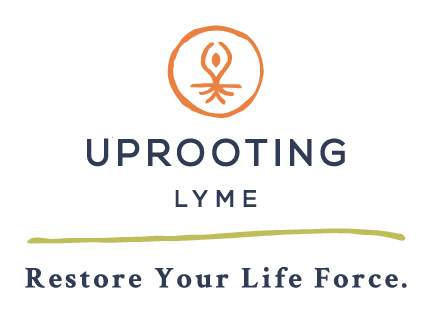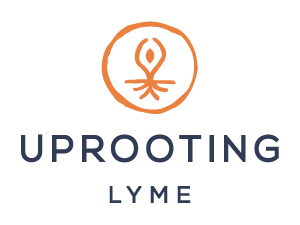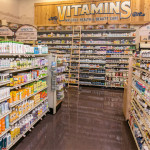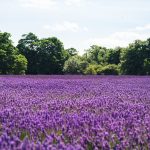
Herbs for Immune Support & Regulation
Key Insights for Reversing Autoimmunity & Chronic Inflammation
These days, many people are looking for herbs for immune support. But what really works, especially when you’re facing serious health challenges?
Immune system depletion, systemic inflammation, and auto-immune conditions are common health problems. Our clinic specializes in prescribing herbs for immune support for conditions such as these. In this article I will share the clinical insights that have led to successful reversal of auto-immune conditions, and the restoration of a dysfunctional immune system with the tools of natural medicine.
Herbs for immune support help many of our patients who deal with confounding health problems. Chronic disease is often caused by a combination of chronic infection, toxin accumulation, stress, and depletion. These factors can lead to a laundry list of symptoms, including fatigue, pain, insomnia, digestive disturbance and much more.
In diagnosis and treatment, we tend to focus on alleviating the symptoms and eliminating the underlying causes. This is critical, yet in some cases immune system imbalance must be addressed directly in order to heal fully.
Immune System Imbalance Can Obstruct the Healing Process
Most people with chronic health problems have some type of inflammation. When inflammation persists over time and infections or toxin levels grow, the immune system can become depleted in a variety of ways. Eventually the infections and toxins, which may reside inside the cells of organs and tissues, trigger auto-immunity when the foreign bodies flag the cells as unhealthy.
Sometimes when treatment seeks to eradicate the infections with antimicrobial medications or herbs, this can lead to even greater inflammation and a worsening of symptoms. Why? Because the die-off and related release of toxins riles the immune response even more. This is like throwing more fuel into the incinerator of inflammation. Such experiences can be stressful and discouraging for both patient and practitioner.
In Chinese medicine, we evaluate the immune system from the perspective of a person’s Qi (life force) energy as a measure of their innate capacity to heal. While most people with complex chronic illness have qi / immune system deficiency, blindly adding qi tonics to the herbal formula often does NOT result in a tangible increase of health, energy or immune strength. Instead, ironically, it may lead to a greater sense of stagnation and fatigue, or a flare up of symptoms.
Healing from chronic illness can be a complicated process as we seek to balance eradicating the underlying causes of illness with rebuilding and restoring the weakened parts of the body. Correcting the immune system’s dysfunctions can go a long way in supporting all other aspects of treatment. We do this by using herbs for immune support, regulation and to reverse inflammation.
3 Types of Immune System Imbalance
The immune system is incredibly complex, driven by multiple feedback loops, and has inherent self-regulating mechanisms that become dysfunctional in many cases of complex chronic illness.
The healing process can be greatly enhanced by treating these self-regulating mechanisms directly, with herbs that support immune system health.
In general, immune system imbalance falls into one of three categories:
1 – Immune deficiency, where the body has weakened ability to fight infection;
2 – Inflammation, where the body is constantly inflamed and unable to regulate the inflammatory response; and
3 – Auto-immune conditions, where the immune system’s inflammatory response is directed against its own tissues, usually because infectious microbes or toxins are hiding inside.
Best Herbs For Immune System Balance
Once you know the nature of your immune system imbalance, you can layer an immune mediation strategy into your health plan. Here are some of my favorite herbs for immune support:
Immune deficiency (aka Th1 suppression), manifests as low CD57 and white blood cell counts, fatigue, frequent colds and difficulty recovering from illness. The best herbs to strengthen the immune system and improve white blood cell counts include:
- Cordyceps, a Traditional Chinese longevity medicine that has been used for centuries to restore strength to a weakened body. It is especially useful to those with lung weakness (such as asthma), kidney, bone, or brain issues. In Chinese medicine it is known as dong chong xia cao, which means “winter bug summer herb” because it is a fungus that grows on caterpillar molt. It has been demonstrated to reverse chemotherapy-induced leukopenia.
- Astragalus is another herb from Traditional Chinese Medicine with a long track record of strengthening a weakened immune system. Astragalus benefits the primal Qi energy of the body, helping to restore the power to fight infection and heal wounded tissues. It promotes healthy digestive and lung function, and has proven beneficial in supporting the immune systems of people undergoing cancer treatment.
Astragalus Immune Shine is an herbal formula that contains a host of other immune tonics as well, including ashwaganda, lion’s mane (coriolus), cat’s claw, ginger and others. It is available as a tincture, granule, or brew tea.
In addition, don’t forget that sunshine is needed for healthy immune function and can greatly improve immune health. During low light times of the year, supplement with UVB light exposure and Vitamin D supplementation.
For allergies, mast cell activation syndrome, and related immune hyperactivity (expressions of Th2 dominance), two of my favorite herbs are baikal skullcap and stinging nettle.
Baikal (Scutellaria baicalensis), or Chinese skullcap, is also known as huang qin in Chinese medicine. This herb’s use was first discussed in the Shen Nong Ben Cao (Divine Farmer’s Material Medica, circa 100 BCE). It is one of the most common and widely applied herbs, as it is used to clear stubborn (chronic) pathogens and toxins from the body. It is cooling and has a bitter flavor, which makes it a strong anti-inflammatory for the lungs, liver, gallbladder, heart and GI organs (stomach and intestines). It calms allergic reactivity to many irritants, including various types of mold and food.
Stinging Nettle is packed with nutrients, including vitamins A and C, iron, potassium, calcium, magnesium and phosphorus. It contains high levels of antioxidants that help provide anti-inflammatory relief from allergies.
Essential oils are another way to harness the power of herbs for immune support. The liposomal essential oil remedy Immune Calm contains oils such as chamomile, frankincense, black cumin and holy basil, that decrease histamine levels and cool down allergic inflammation.
For autoimmune disorders, excellent herbs to support both detoxification and immune mediation include baikal skullcap (described above)f, and red sage (dan shen).
Red sage (Salvia miltiorrhiza), also known as dan shen, has been used for centuries in Chinese herbal medicine to support cardiovascular health, calm the nervous system, and clear inflammation. Red sage promotes blood circulation and is anti-inflammatory for the endothelial cells that line the blood vessels. This makes it an important herb for the treatment of Babesia and Bartonella infections (which inflames and congests the capillary beds). Researchers have identified over 200 plant compounds in red sage that are anti-oxidant, anti-inflammatory, and health promoting, particularly for the heart and cardiovascular system. Traditionally red sage is also used to support the mind and spirit, helping to address emotional distress and irritability.
Skullcap Clear Fire is an herbal formula that contains numerous top-performing anti-inflammatory herbs, including baikal skullcap, red sage, shepherd’s purse and others. It is specially designed to lower inflammation in chronic and auto-immune conditions, and support immune regulation.
Adding this layer of herbal strategy into my practice has been a game changer for many of my patients!
If you are a practitioner and would like to develop mastery in this approach to support your patients’ immune systems, then join me for my upcoming Practitioner Masterclass:
Healing A Broken Immune System with Herbal & Functional Medicine.
In just 1 day you will receive the information that took me many months of clinical research and trial and error to piece together. I look forward to supporting your clinical knowledge and herbal mastery!
Not a practitioner? You may take the class to enhance your personal healing process, but this workshop is intended for practitioners and will be taught at a professional level.
Article updated 10/2023
Sources:
Astragalus membranaceus. Monograph. Altern Med Rev. 2003 Feb;8(1):72-7. PMID: 12611564.
Block KI, Mead MN. Immune system effects of echinacea, ginseng, and astragalus: a review. Integr Cancer Ther. 2003 Sep;2(3):247-67. doi: 10.1177/1534735403256419. PMID: 15035888.
Feng Jie, et al. Evaluation of Natural and Botanical Medicines for Activity Against Growing and Non-growing Forms of B. burgdorferi. Frontiers in Medicine, vol. 7, 2020.
Jin M, Zhao K, Huang Q, Shang P. Structural features and biological activities of the polysaccharides from Astragalus membranaceus. Int J Biol Macromol. 2014 Mar;64:257-66. doi: 10.1016/j.ijbiomac.2013.12.002. Epub 2013 Dec 8. PMID: 24325861.
Liao H, Ye J, Gao L, Liu Y. The main bioactive compounds of Scutellaria baicalensis Georgi. for alleviation of inflammatory cytokines: A comprehensive review. Biomed Pharmacother. 2021 Jan;133:110917. doi: 10.1016/j.biopha.2020.110917. Epub 2020 Nov 17. PMID: 33217688.
Liu WC, Chuang WL, Tsai ML, Hong JH, McBride WH, Chiang CS. Cordyceps sinensis health supplement enhances recovery from taxol-induced leukopenia. Exp Biol Med (Maywood). 2008 Apr;233(4):447-55. doi: 10.3181/0708-RM-230. PMID: 18367634; PMCID: PMC2775070.
MEIm XD, Cao YF, Che YY, Li J, Shang ZP, Zhao WJ, Qiao YJ, Zhang JY. Danshen: a phytochemical and pharmacological overview. Chin J Nat Med. 2019 Jan;17(1):59-80. doi: 10.1016/S1875-5364(19)30010-X. PMID: 30704625.
Ning-Zhi Tan, et al. The lifespan-extending effect of Cordyceps sinensis Cs-4 in normal mice and its molecular mechanisms. The FASEB Journal, April 2011.
Riehemann K, Behnke B, Schulze-Osthoff K. Plant extracts from stinging nettle (Urtica dioica), an antirheumatic remedy, inhibit the proinflammatory transcription factor NF-kappaB. FEBS Lett. 1999 Jan 8;442(1):89-94. doi: 10.1016/s0014-5793(98)01622-6. PMID: 9923611.
Roschek B Jr, Fink RC, McMichael M, Alberte RS. Nettle extract (Urtica dioica) affects key receptors and enzymes associated with allergic rhinitis. Phytother Res. 2009 Jul;23(7):920-6. doi: 10.1002/ptr.2763. PMID: 19140159.
Vasiljevic JD, Zivkovic LP, Cabarkapa AM, Bajic VP, Djelic NJ, Spremo-Potparevic BM. Cordyceps sinensis: Genotoxic Potential in Human Peripheral Blood Cells and Antigenotoxic Properties Against Hydrogen Peroxide by Comet Assay. Altern Ther Health Med. 2016 Jun;22 Suppl 2:24-31. PMID: 27433838.
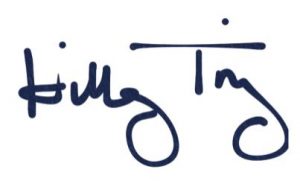
Hillary Thing, LAc.
